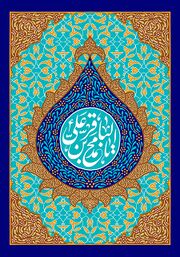In the realm of Islamic scholarship, particularly within Shia Islam, the figure of Burayd b. Mu’awiya al-‘Ijli emerges as a significant source of teachings and wisdom. A multifaceted personality, al-‘Ijli offers insights that not only bolster one’s understanding of faith, but also encourage an introspective examination of spirituality and the ethical dimensions of quotidian life. This article delves into the teachings attributed to al-‘Ijli, exploring his contributions, methodology, and the implications of his insights for contemporary adherents of Shia Islam.
To contextualize Burayd b. Mu’awiya al-‘Ijli, one must first consider the milieu in which he operated. Flourishing in the 8th century, during the formative years of Shia scholarship, al-‘Ijli was a contemporary of notable Imams and scholars. His intellectual pursuits were largely shaped by the socio-political environment of his time, characterized by the evolving dynamics between the Umayyad and Abbasid caliphates. What does this historical backdrop suggest about the challenges he faced?
One might ask: in an era rife with sectarian strife and political machinations, how did al-‘Ijli navigate these complexities to construct a coherent theological narrative? His approach to Islamic teachings can be understood through the lens of consensus-building among varying interpretations of Islamic doctrine. Al-‘Ijli is known for his emphasis on collective discourse and scholarly debates, which provided a fertile ground for the development of Shia thought.
Among his significant contributions is the articulation of ethical principles rooted in the Islamic faith. Al-‘Ijli’s framework underscores the importance of moral rectitude, advocating for a life characterized by honesty, justice, and compassion. In a world often governed by avarice and treachery, could these teachings be viewed as radical? Indeed, al-‘Ijli challenges his followers to rise above the mundane, engaging with core principles that sanctify everyday interactions.
Tags
Share this on:
[addtoany]


